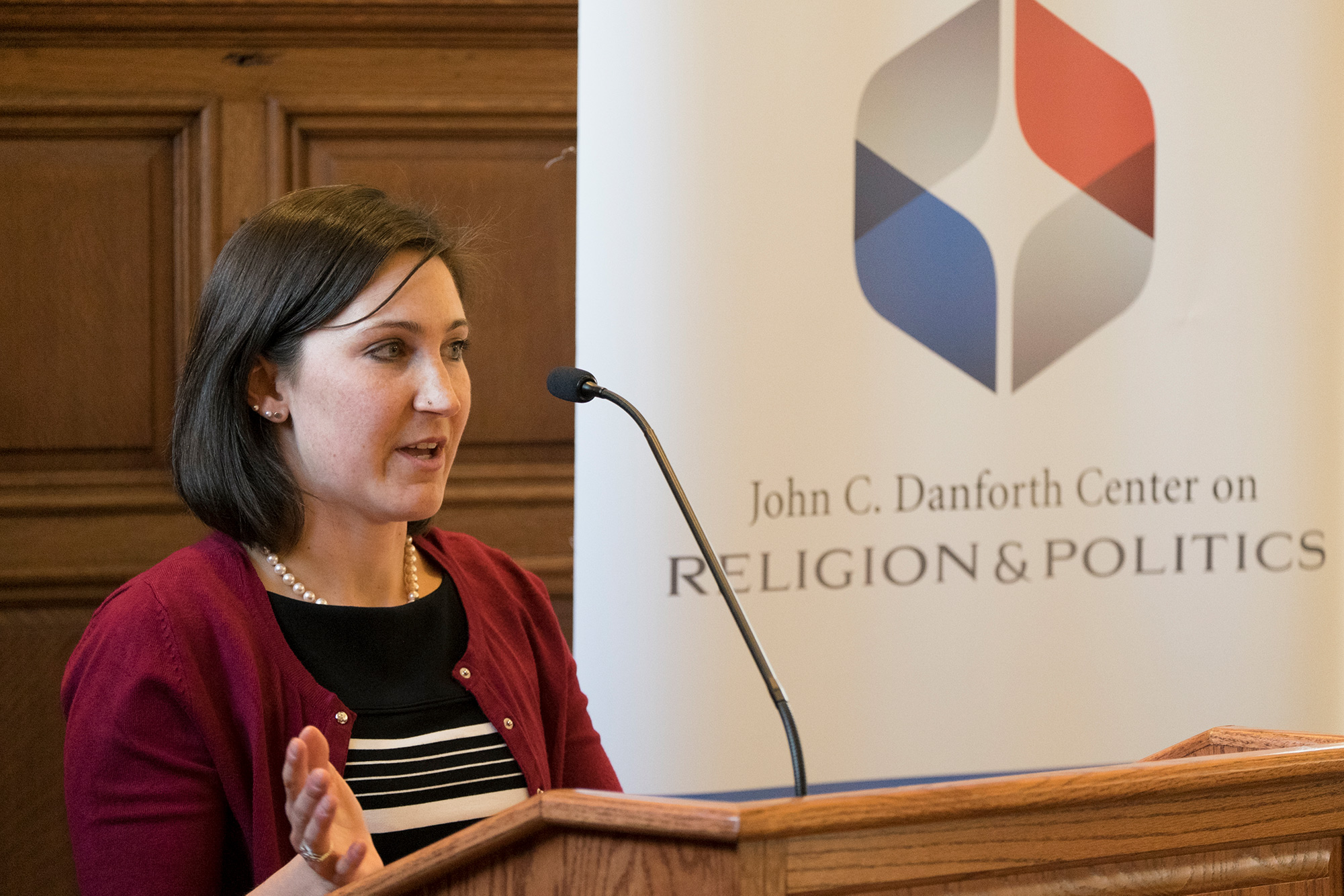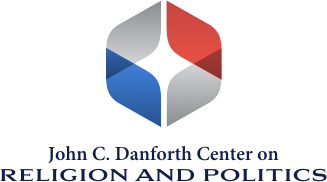In the Classroom
We offer a broad and diverse undergraduate curriculum focusing on the intertwined relationship between religion and politics across U.S. history, from the colonial era to the present. We also support early career scholars with fellowships that offer teaching and research opportunities at the Center.

Dissertation Completion Fellows
From 2013-2016, we hosted junior scholars with a fellowship in residence to support the completion of their dissertation.
The Center previously offered fellowships in residence to support completion of a dissertation pertaining to religion and politics in the United States. These fellows devoted their time to writing and contributed to the intellectual life of the Center by participating in the Religion and Politics colloquium, teaching courses, or organizing events.

Rachel Gross was a Ph.D. candidate in the Department of Religion at Princeton University during her fellowship with the Center during the 2013-2014 academic year. Her dissertation, “Objects of Affection: The Material Religion of American Jewish Nostalgia,” claims nostalgia as an integral religious feature of American Jewish identity politics in the latter half of the twentieth century and into the twenty-first century. Through material culture and ethnographic research, she examines American Jews’ sentimental, generalized longing for their communal homelands of Eastern Europe and ethnic neighborhoods in the United States, particularly but not exclusively New York’s Lower East Side. Gross earned a B.A. in Jewish Studies and an M.A. in Religious Studies from the University of Virginia.
Emily Johnson was a Ph.D. candidate in the History Department at Yale University during her fellowship at the Center for the 2013-2014 year. Her work focuses on the intersections between religion, politics, and gender among conservative evangelical Protestants in the late twentieth century United States. Her dissertation, “Activists, Authors, Apostles: Women’s Leadership in the New Christian Right,” emphasizes the ways in which women’s national prominence was vital to the ascendency of the modern religious right during the 1970s and 1980s. Focusing on self-described activists as well as women who rejected political engagement, this project emphasizes on the shifting boundaries of the religious and political realms during this significant period in U.S. religious and political history. She earned her B.A. in History and Women’s Studies (a double major) from University of Alberta.
Lauren Turek was a doctoral candidate in the Corcoran Department of History at the University of Virginia during her Center fellowship for the 2014-2015 academic year. She specializes in the history of U.S. foreign relations, politics, and 20th-century American evangelicalism. Her dissertation entitled “To Bring the Good News to All Nations: Evangelicals, Human Rights, and U.S. Foreign Policy, 1969-1994,” explores the complex and deeply significant ways in which religion and religious groups interacted with foreign policy, political culture, and the international human rights regime to shape America’s role in the modern world. She earned her M.A. in history from the University of Virginia and her M.A. in museum studies from New York University. She earned her bachelor’s in history at Vassar College.

Stephanie Wolfe was a doctoral candidate in the Department of Religious Studies at Northwestern University during her dissertation fellowship at the Center in 2014-2015. Her dissertation, entitled “Urban Renewal: The Evangelical Encounter with Race, Poverty and Inequality in Chicago,” utilizes ethnographic and historical methods to examine evangelical conceptions of urban America, social justice, and racial identity throughout the late twentieth and early twenty-first centuries. Wolfe’s broader interests include American religious history, particularly American evangelicalism; urban studies; and the intersections among religion, politics, race, and capitalism in American public life. Wolfe earned her M.A. in religious studies at Northwestern University and her B.A. in religion from Columbia University.
Stephanie Gaskill was a fellow in 2015-2016, when she was a doctoral candidate in the Department of Religious Studies at the University of North Carolina-Chapel Hill. She specializes in the history and ethnography of African American religions and U.S. social policy. Her dissertation entitled “Moral Rehabilitation: Religion, Race, and Reform in America’s Prison Capital” explores how the predominance of African Americans in U.S. prisons shapes the conception, implementation, reception, and public presentation of rehabilitative programming. She earned her M.A. in history, as well as her bachelor’s in history and English, from Bowling Green State University.
Scott Libson was a Ph.D. candidate and George W. Woodruff fellow in the history department at Emory University during his 2015-2016 fellowship at the Center. He specializes in the histories of religion and capitalism in the United States during the Gilded Age and Progressive Era. His dissertation, “Tainted Money, Sanctified Wealth: The Business of Mission Movement Fundraising, 1865-1929” examines the development of global philanthropies in the United States through an analysis of fundraising for Protestant foreign missionary societies between the Civil War and the Great Depression. He earned his B.A. in archaeology, French, and religion from Columbia University. He holds master’s degrees in the history of Christianity from Yale University and history from Emory University

